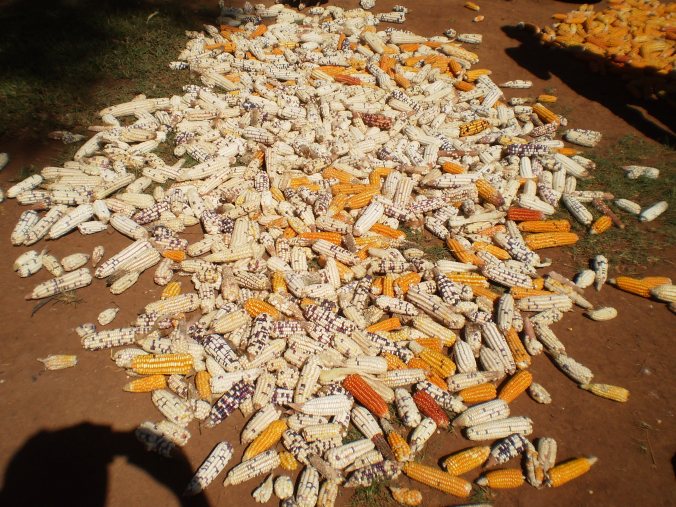Local seeds – also known as landraces – are important genetic resources for food production at regional and household level. Many farmers around the world plant the landraces they have saved for years and exchanged between generations and homesteads. They do this for a variety reasons: taste, colour, easy to reproduce and exchange with neighbours and friends, do not require monetary inputs, and grow well under local conditions of access to land, compost and manure. Landraces are also culturally well accepted. The planting and selecting of landraces equals ‘agro-ecology by default’ which revolves around farming with locally available resources.
Despite that the local seeds are widely preferred and much used, policy makers, donors and experts instead promote the use of modern seeds from specialised companies (e.g. Monsanto/Bayer, Pioneer Hybrid, SeedCo, etc.). These generally are hybrid varieties which are bred and promoted as being more productive than local seeds, and therefore better to secure food for all. Hybrids, however, require substantial monetary inputs to purchase the seeds every planting season again and to buy fertilizer. Only if seeds are purchased anew and fertilizer applied in recommended portions, hybrid yield (measured in quantity per size of land) well. Taste and nutritious qualities are also critical issues.
‘Local Seeds in Africa ’ explores the history and documents the potential of local seeds in West Kenya. The focus is on the planting, selecting and consuming of various local maize varieties. These are referred to as Nyaluo in Luoland, West Kenya and as Lilimi in Luhyaland, also in West Kenya. Exploring and documenting occurs through archival research, case studies and life histories of people that grow local and hybrid maize and the agencies that promote various types of hybrids. More recently we embarked on a series of experiments to compare the potential of local and hybrid maize grown under local conditions of labour, soil fertility, manure, compost and markets.

